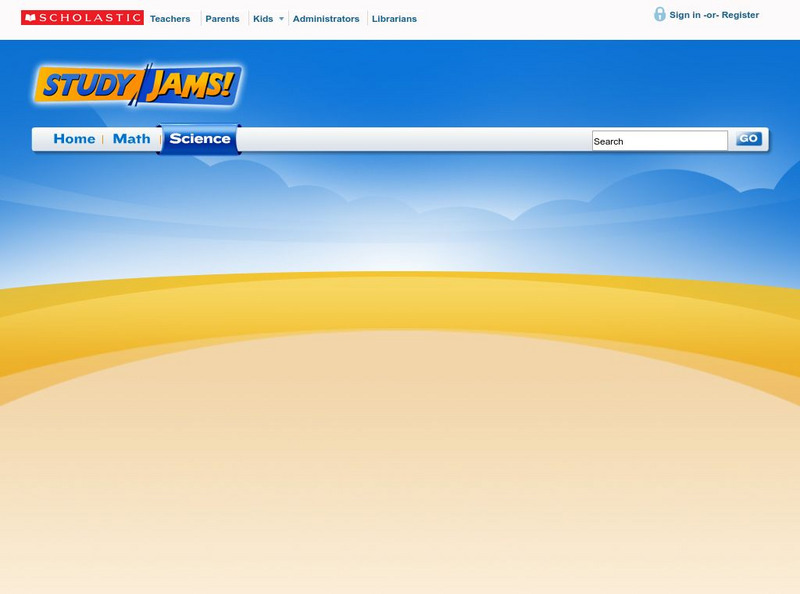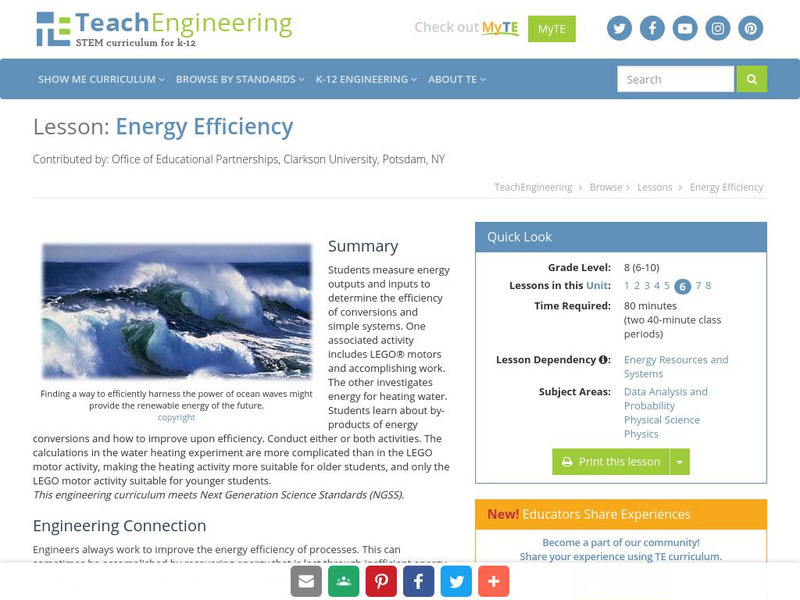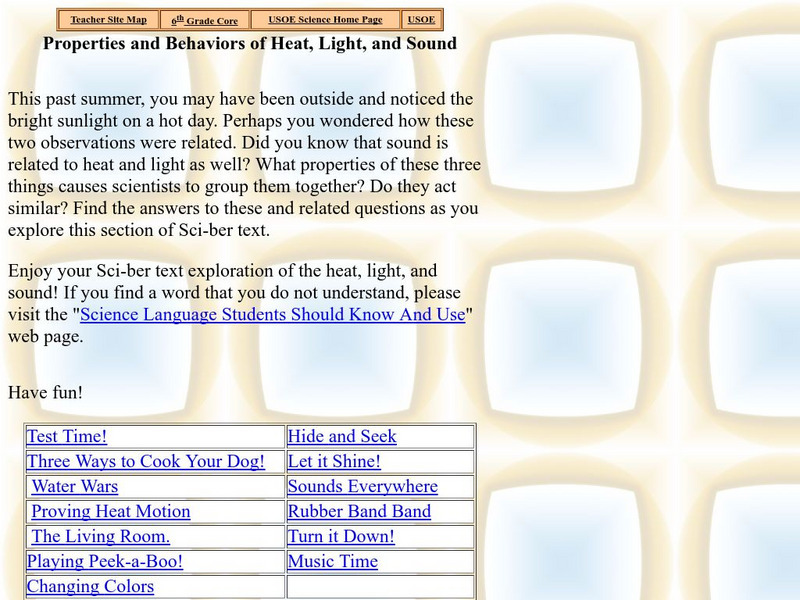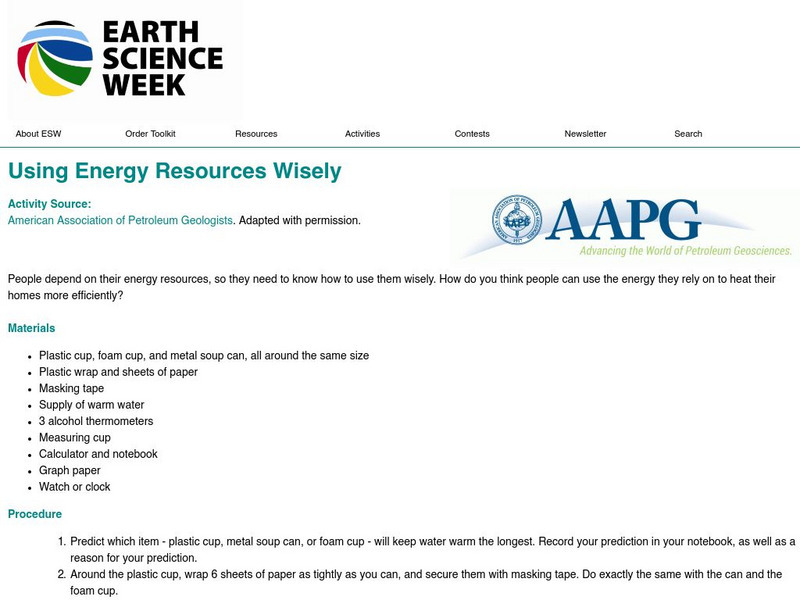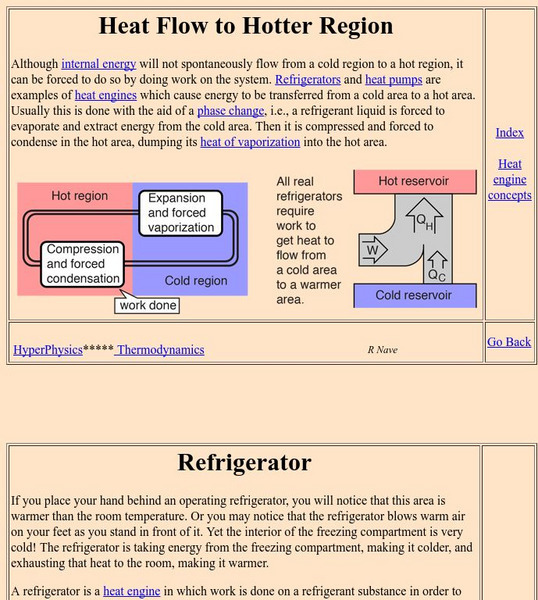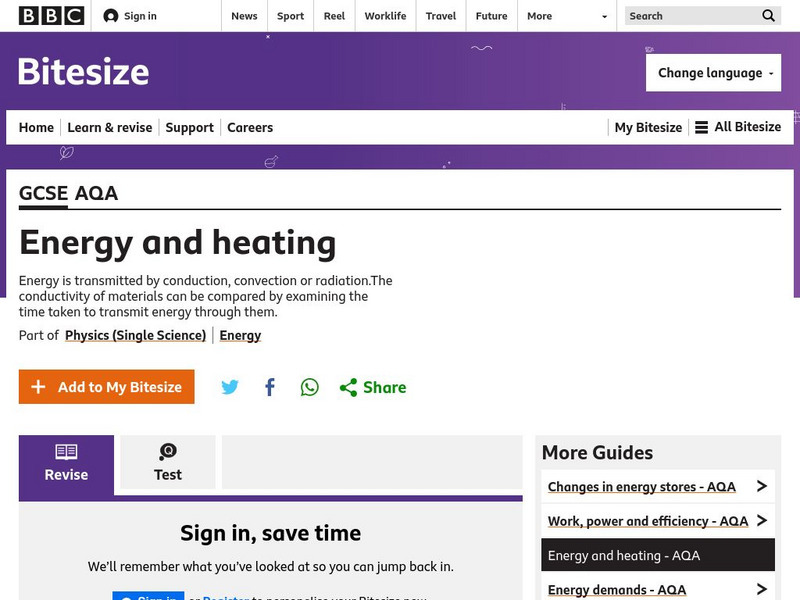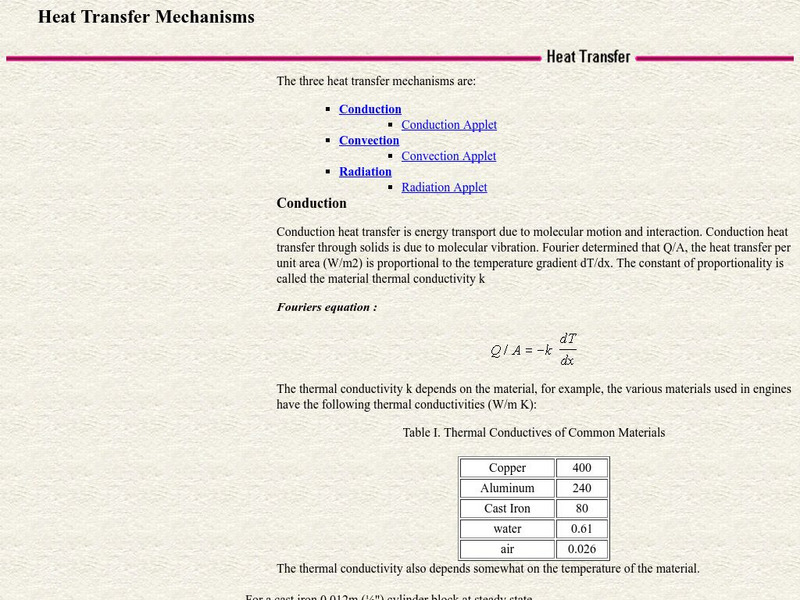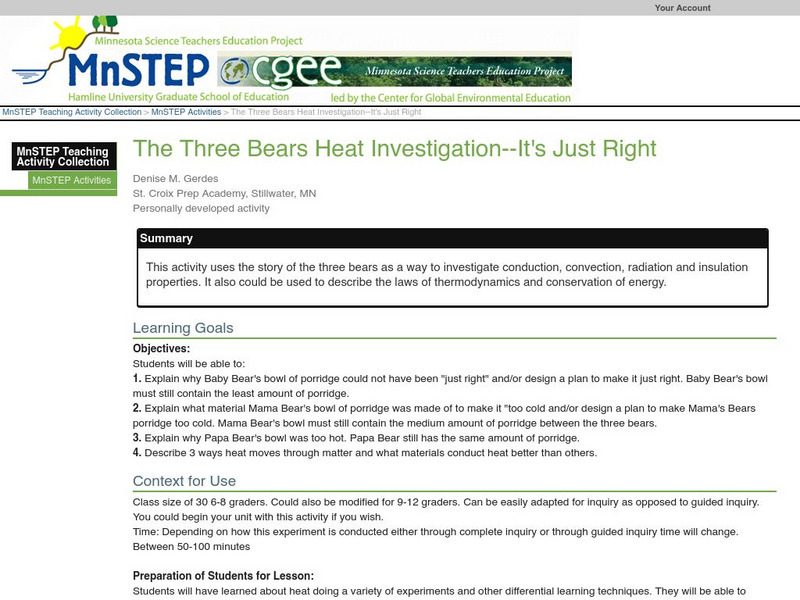Utah Education Network
Uen: Trb 3:5 Investigation 4 Heat Misconceptions
Gloves do not give heat, but will insulate or hold in any heat that is in your hand.
Other
Warmair.com: Attic Insulation Calculator
An online JavaScript application which allows visitors to investigate the relative amount of heat being lost from their homes due to insufficient insulation. The current R-value and a hypothetical R-value can be entered and the energy...
BBC
Bbc Schools: Ks2 Bitesize: Science: Materials: Heat
A short, illustrated tutorial about how heat energy moves. After reading the material, take a quick quiz to check for understanding.
Oak Ridge National Laboratory
Oak Ridge National Laboratory: Insulation Fact Sheet
Several well-written pages using easy-to-understand language. Explains about every detail concerning insulation and its installation or replacement. Discusses R values, heat loss, insulation types, etc.
OpenSciEd
Open Sci Ed: 6.2 Thermal Energy
This Thermal Energy unit has students investigating two ways to transfer energy into a drink: (1) the absorption of light and (2) thermal energy from the warmer air around the drink. They are then challenged to design their own drink...
Scholastic
Scholastic: Study Jams! Science: Energy, Light and Sound: Heat
A video and a short quiz on heat, covering its difference from temperature, thermal energy, and the means by which heat is transferred.
TeachEngineering
Teach Engineering: What Is Heat?
Students learn about the definition of heat as a form of energy and how it exists in everyday life. They also learn about the three types of heat transfer as well as the connection between heat and insulation.
TeachEngineering
Teach Engineering: Zero Energy Housing
Students investigate passive solar building design with a focus solely on heating. They learn how insulation, window placement, thermal mass, surface colors, and site orientation play important roles in passive solar heating. They use...
TeachEngineering
Teach Engineering: Energy
Through nine lessons, students are introduced to a range of energy types--electrical, light, sound and thermal-as well as the renewable energy sources of wind, hydro (water) and solar power. Subjects range from understanding that the...
TeachEngineering
Teach Engineering: What Is the Best Insulator: Air, Styrofoam, Foil, or Cotton?
That heat flows from hot to cold is an unfortunate truth of life. People have put a lot of effort into stopping this fact, however all they have been able to do is slow the process. Working in groups of three to four, students will...
TeachEngineering
Teach Engineering: Energy Efficiency
Students measure energy outputs and inputs to determine the efficiency of conversions and simple systems. One associated activitiy includes Lego motors and accomplishing work. The other investigates energy for heating water. Students...
TeachEngineering
Teach Engineering: Heat Transfer: No Magic About It
Heat transfer is an important concept that is a part of everyday life yet often misunderstood by young scholars. In this instructional activity, students learn the scientific concepts of temperature, heat, and the transfer of heat...
American Chemical Society
Middle School Chemistry: Heat, Temperature, and Conduction
Students observe, describe, and draw a model on the molecular level, showing how energy is transferred from one substance to another through conduction.
Utah State Office of Education
Utah Science: Properties and Behaviors of Heat, Light and Sound
How can scientists lump heat, light and sound together when investigating properties and behaviors? This learning module will address that question through a series of activities.
Other
Warmair.com: Insulation
The role of insulation in preventing heat loss is discussed. The concept of thermal resistance is introduced and explained. Understandable language but no graphics.
OpenSciEd
Open Sci Ed: 6.2 Thermal Energy Teacher Professional Development Overview
This four-day professional development session introduces teachers to the OpenSciEd materials generally in addition to the 6.2 Thermal Energy unit.
American Geosciences Institute
American Geosciences Institute: Earth Science Week: Using Energy Resources Wisely
Students test which type of material retains heat the longest.
Science Buddies
Science Buddies: Which Is the Better Insulation Material?
You've probably noticed that the price of gasoline can fluctuate a great deal from one year to the next. Using good insulation material is one way to conserve energy and save money. Learn here which insulation materials work better than...
TeachEngineering
Teach Engineering: Stop Heat From Escaping
One way to conserve energy in a building is to use adequate insulation. Insulation helps keep the hot or cool air inside or outside of a building. Inefficient heating and cooling of buildings is a leading residential and industrial...
Georgia State University
Georgia State University: Hyper Physics: Heat Flow to Hotter Region
Heat flow from a hot region to a cold region is described and explained. Applications of this phenomenon (specifically heat pumps and refrigerators) are discussed. Excellent graphics.
BBC
Bbc: Gcse Bitesize: Energy and Heating
Energy is transmitted by conduction, convection or radiation.The conductivity of materials can be compared by examining the time taken to transmit energy through them. This lesson explains how conduction works and provides a link to a test.
Colorado State University
Csu: Heat Transfer Mechanisms
An excellent page from the Colorado State University with a heavy mathematical emphasis. Each form of heat transfer--conduction, convection, and radiation--is defined, compared, and contrasted. Mathematical equations governing the rates...
Science Education Resource Center at Carleton College
Serc: The Three Bears Heat Investigation It's Just Right
This activity uses the story of the three bears as a way to investigate conduction, convection, radiation, and insulation properties. It also could be used to describe the laws of thermodynamics and conservation of energy.
Better Planet Productions
Earth Care: Where's the Heat? [Pdf]
Young scholars will work alongside the school caretaker to determine ways in which their school loses heat, and learn about strategies that can reduce or prevent this.



